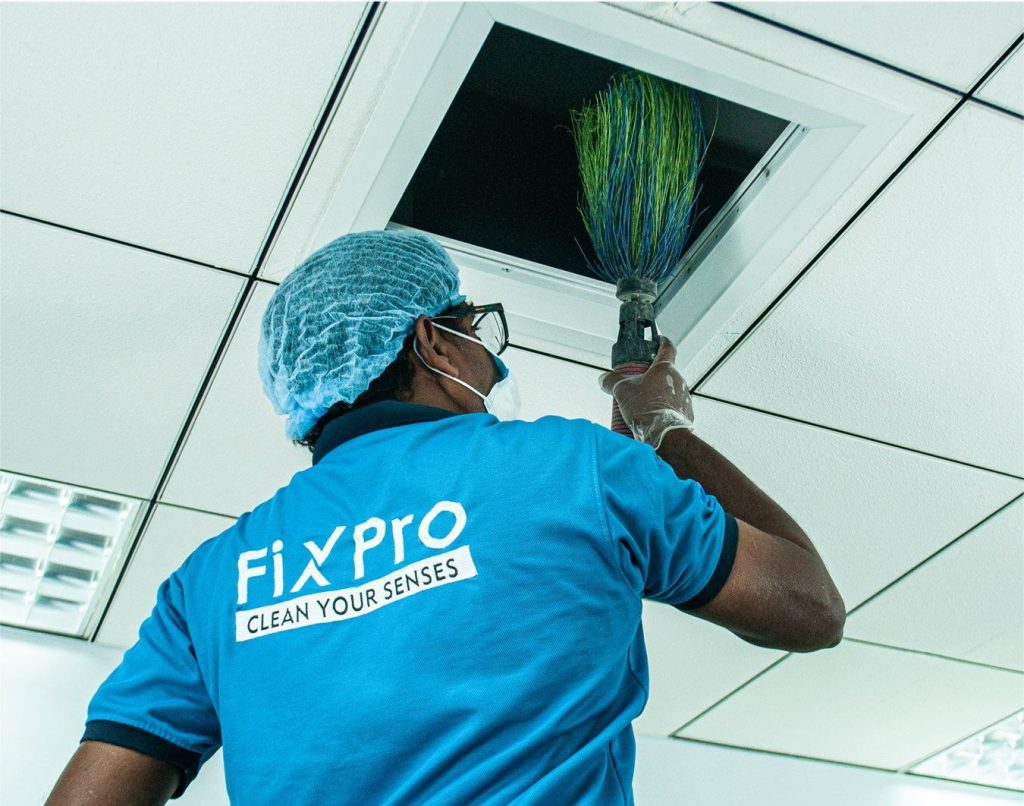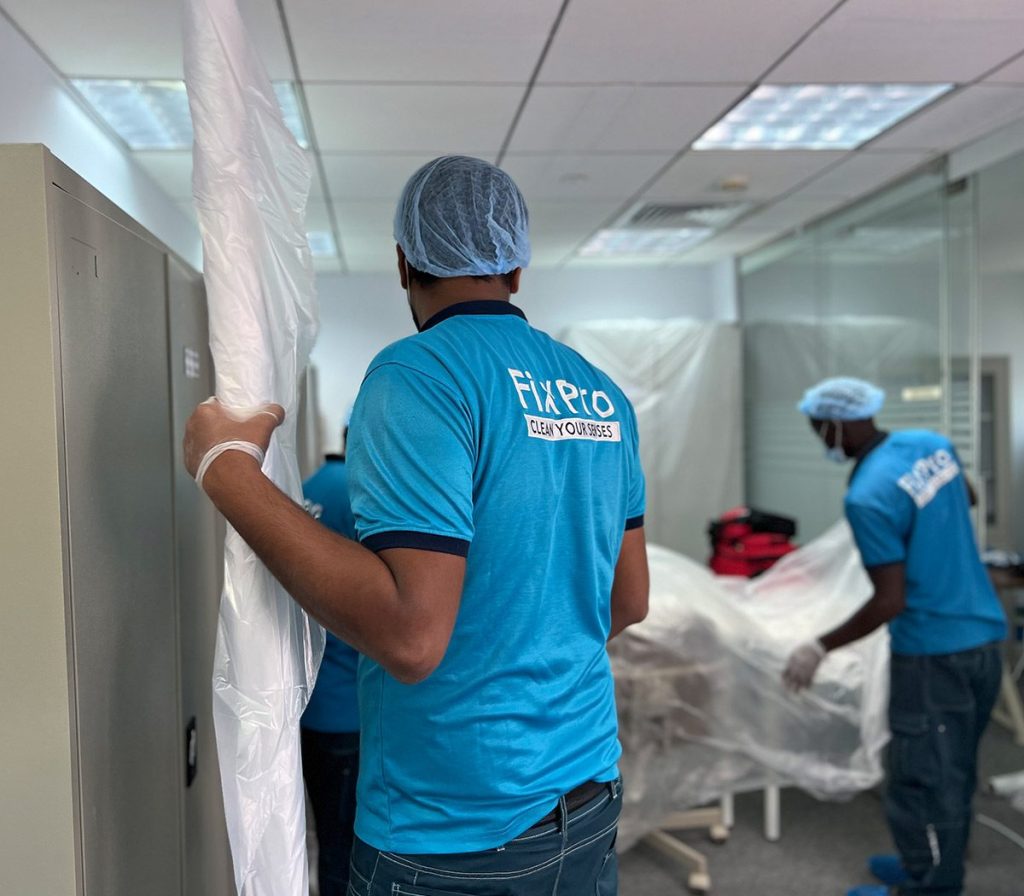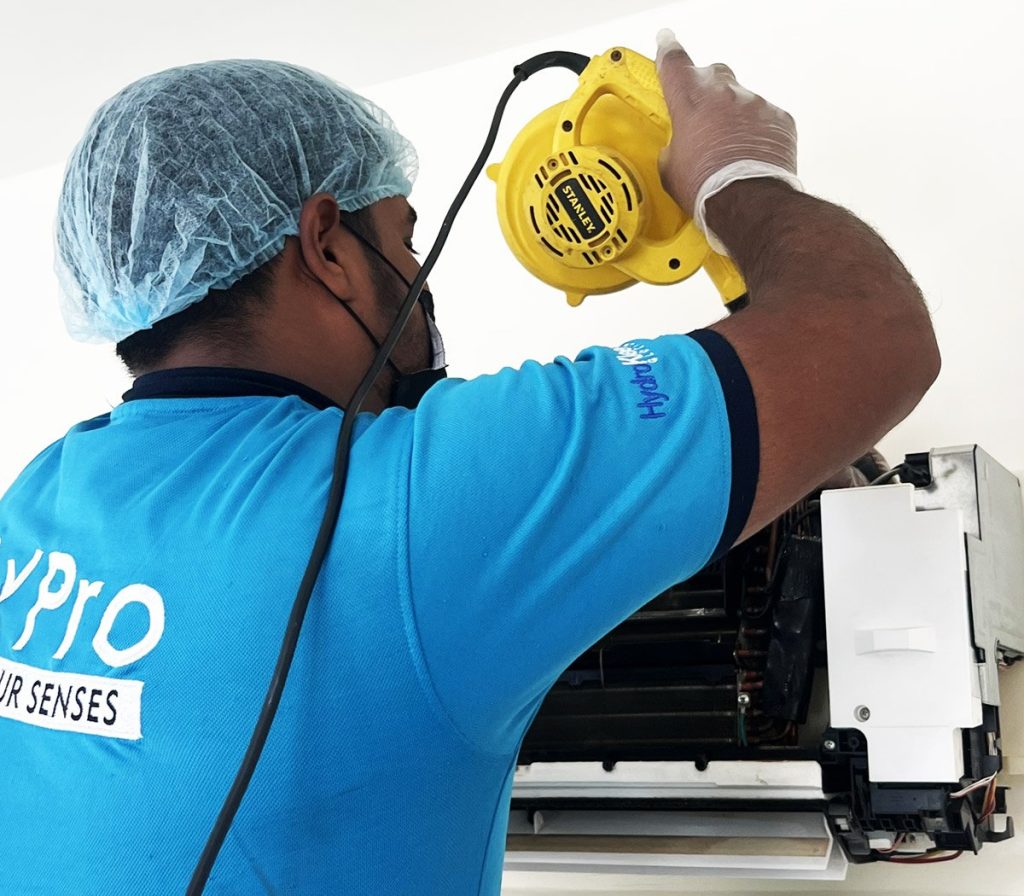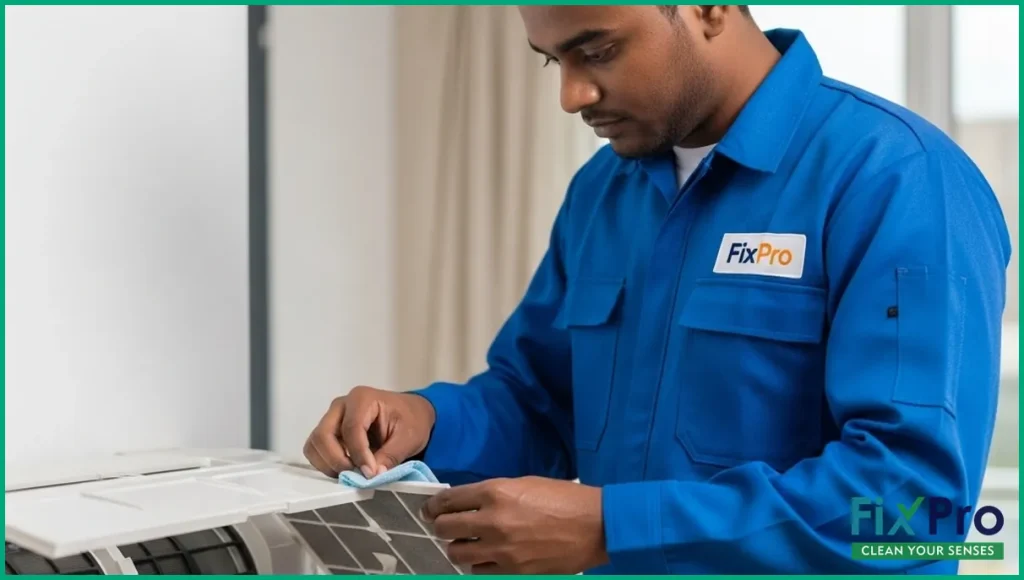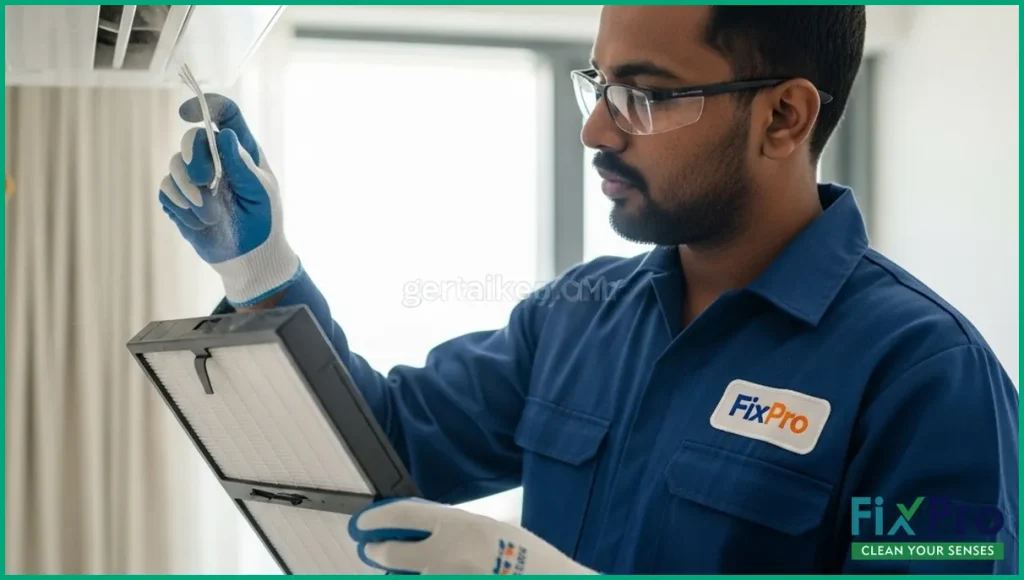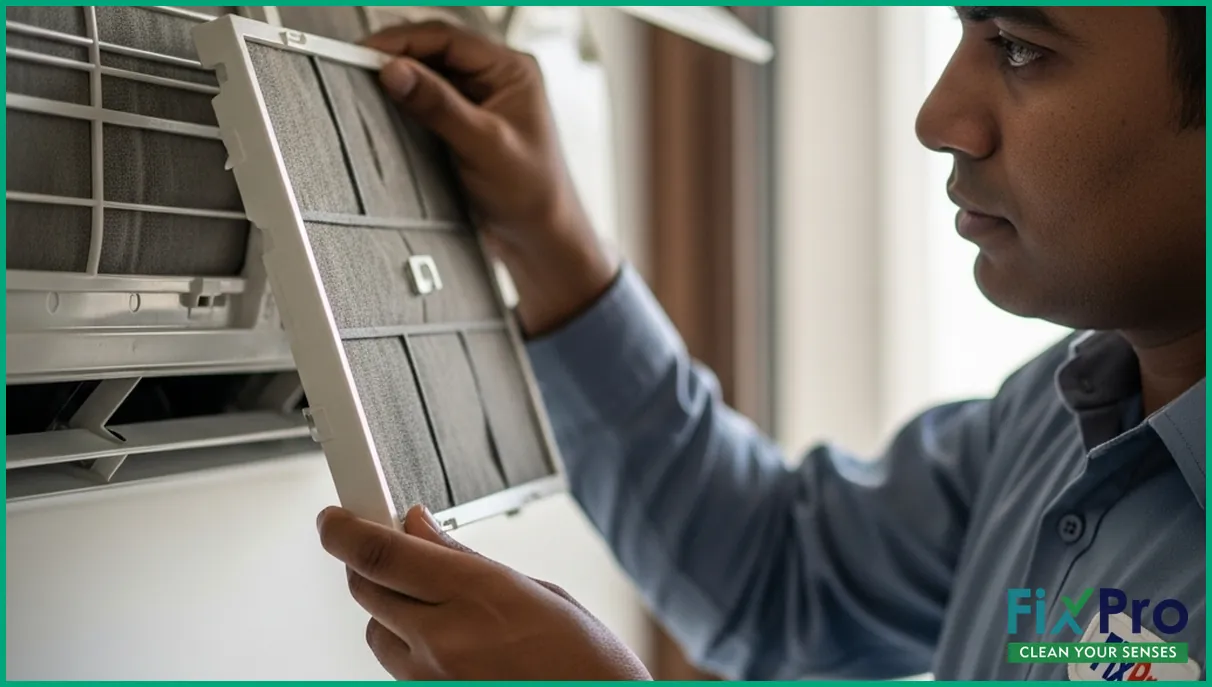
Why Timely AC Cleaning & Maintenance Matters
In the UAE’s hot climate, air conditioning is more than a luxury—it’s a necessity. When your AC system gets dirty or neglected, it can’t work efficiently. This leads to higher energy bills, poor indoor air quality, and even system breakdowns. Regular maintenance not only extends your AC’s lifespan but also keeps your home healthy and comfortable.
Especially during sandstorms or periods of high humidity, dust and moisture can quickly build up in AC units across the UAE. This makes timely cleaning even more critical. For families with young children, elderly members, or anyone with respiratory sensitivities, maintaining a clean AC can dramatically reduce health risks and improve daily comfort.
8 Signs You Need Urgent AC Cleaning & Maintenance Service
-
Weak or Uneven Airflow
If some rooms feel cooler than others, or air barely comes out of the vents, your AC’s ducts or filters may be clogged. This can strain the system and cause uneven cooling.
Try this: Hold your hand up to each vent while the AC runs. If one vent blows less air than others, or none at all, it’s likely time to check for blockages or dust buildup. In multi-story homes, upper floors may feel warmer if airflow is compromised.
-
Unusual Noises
Banging, rattling, or whistling sounds aren’t normal. These noises often signal loose parts or debris inside the unit. Ignoring them can lead to bigger repairs.
For example, a high-pitched whistling may indicate a clogged filter, while clanking could mean a loose fan blade. If you hear grinding, turn off the unit and call a technician immediately to prevent further damage.
-
Persistent Bad Odours
Musty or foul smells when the AC runs may indicate mould or bacteria buildup in the ducts or unit. This can worsen allergies and make your home uncomfortable.
In coastal UAE regions, high humidity can accelerate mould growth inside AC systems. If you notice a “dirty sock” smell, try running the fan with windows open for a short time, but if the odour persists, schedule a professional cleaning.
-
Visible Dust or Mould Around Vents
If you see dust or dark spots near your AC vents, it’s a sign that the system is spreading contaminants. This is especially common in humid environments.
Tip — Check vent covers monthly for visible dust or mould growth.Wipe vent covers with a damp cloth and inspect for any recurring buildup. If dust returns quickly after cleaning, your ducts or filters may need deeper attention.
-
Frequent Allergies or Respiratory Issues
If family members start sneezing or coughing more at home, your AC might be circulating allergens. Dirty filters and ducts can worsen indoor air quality.
Homes with pets or near construction sites are more prone to indoor allergens. Try pairing regular AC cleaning with frequent dusting and vacuuming to reduce triggers. Consider using a HEPA filter if allergies are severe.
-
Water Leaks or Excess Moisture
Pooled water under your AC or dampness near vents can mean clogged drain lines or a malfunctioning system. Address leaks quickly to prevent mould and water damage.
Before calling a professional, check if the AC’s drain pan is full or if the drain pipe is blocked by dust. In some cases, gently cleaning the drain line with a pipe cleaner can help, but persistent leaks require expert attention.
-
Rising Electricity Bills
An unexplained increase in your energy bill, especially during the summer, may indicate your AC is working harder than it should due to dirt or blockages.

Rising energy costs can signal your AC isn’t running efficiently due to dirt or neglect. Compare your current bill to the same month last year. If usage is similar but costs are higher, your AC may be clogged or running inefficiently. Try reducing the thermostat by a degree or two and see if the system cycles off more frequently—if not, a cleaning may be overdue.
-
AC Not Cooling Properly
If your AC runs constantly but doesn’t cool your space, the evaporator coils or filters may be clogged. Sometimes, the problem is as simple as a dirty filter.
Before calling for service, check that doors and windows are closed, curtains are drawn, and the thermostat is set correctly. If the problem persists, avoid running the AC non-stop, as this can overwork the system and raise repair costs.
How AC Cleaning Differs from Routine Maintenance
AC cleaning focuses on removing dust, mould, and debris from filters, coils, and ducts. Routine maintenance includes checking refrigerant levels, inspecting electrical components, and ensuring the system runs smoothly. Both are important but address different needs.
| AC Cleaning | Routine Maintenance | When Needed |
|---|---|---|
| Removes dust and mould from filters and coils | Checks system parts, refrigerant, and connections | When airflow drops or odours appear |
| Improves air quality | Prevents breakdowns and inefficiency | Seasonally or as recommended |
| Targets visible and hidden dirt | Keeps AC running smoothly | After storms or heavy use |
| Removes pet hair and sand particles | Tests thermostat and safety controls | Before moving into a new home |
For best results, pair annual maintenance with regular cleaning during peak summer months. In Dubai and Abu Dhabi, where dust storms are frequent, extra cleaning sessions may be necessary. If you rent, check with your landlord about who covers routine AC service.
What to Expect from Professional AC Cleaning Services
A professional AC service typically includes cleaning the filters, coils, and drain lines, as well as inspecting for leaks or electrical issues. In the UAE, many providers, like fixpro, also offer ac duct cleaning for a more thorough approach.
- Filter and coil cleaning
- Duct inspection and cleaning
- Drain line flushing
- System performance check
- Recommendations for repairs if needed
- Checking for refrigerant leaks and topping up if necessary
- Sanitising air vents and grills to prevent mould regrowth
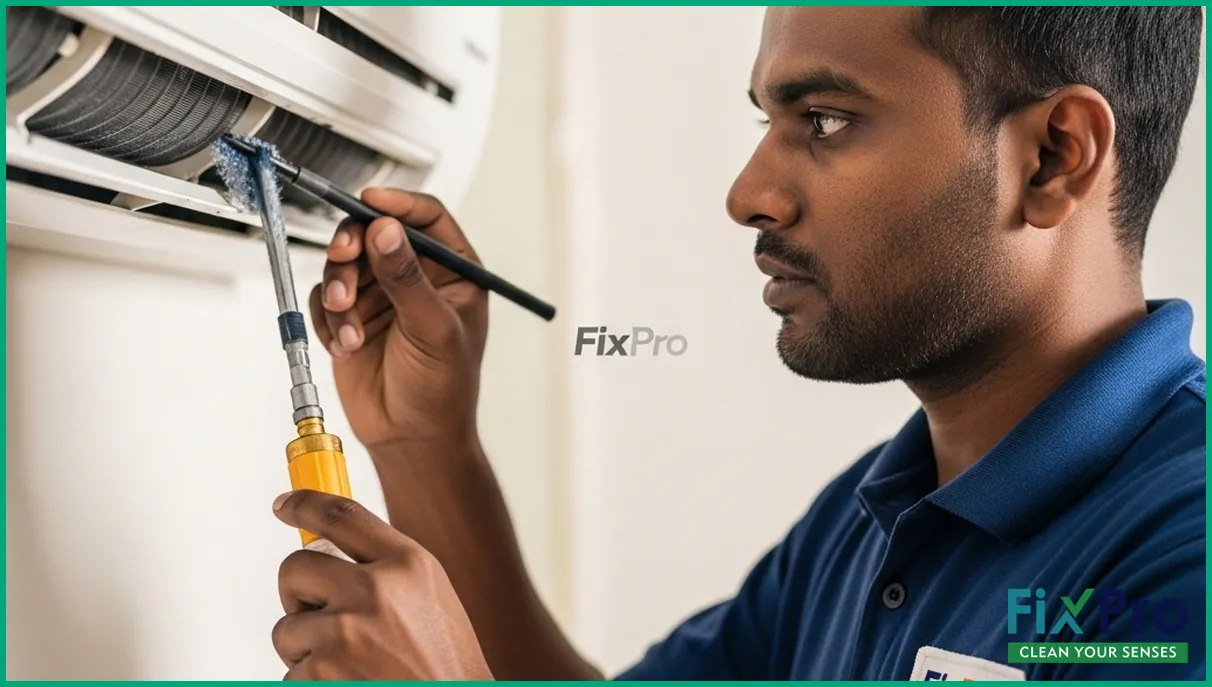
Before the technician arrives, clear the area around your indoor and outdoor AC units to allow easy access. Remove fragile items and ensure pets are safely out of the way. After the service, ask for a summary of what was cleaned and any recommendations for follow-up.
How Often Should You Get Your AC Serviced?
In most UAE homes, AC systems run for much of the year. It’s generally recommended to have your AC professionally serviced at least once a year. However, if you notice any of the signs above, don’t wait for your annual check—schedule a cleaning right away.
Homes near construction sites or with pets may need more frequent cleaning due to extra dust and debris. If you have specific health concerns, such as allergies, regular HVAC maintenance can help keep your indoor air cleaner.
For best results, schedule your AC service before summer begins—this helps avoid breakdowns during peak heat. In coastal regions like Sharjah and Ras Al Khaimah, salt and humidity can accelerate corrosion, so consider twice-yearly servicing. Always keep a record of service dates for warranty and reference.
DIY Tips: What Can You Safely Do Yourself?
While some simple tasks can be handled at home, leave deep cleaning and repairs to professionals. Here are a few things you can safely do:
- Check and replace or wash filters monthly.
- Wipe dust from vent covers.
- Keep the area around your indoor and outdoor units clear.
- Use a soft brush to gently clean accessible coils on window AC units.
- Vacuum any visible dust from around the return air grille.
Avoid opening sealed AC components or handling refrigerants—this requires special training and equipment.
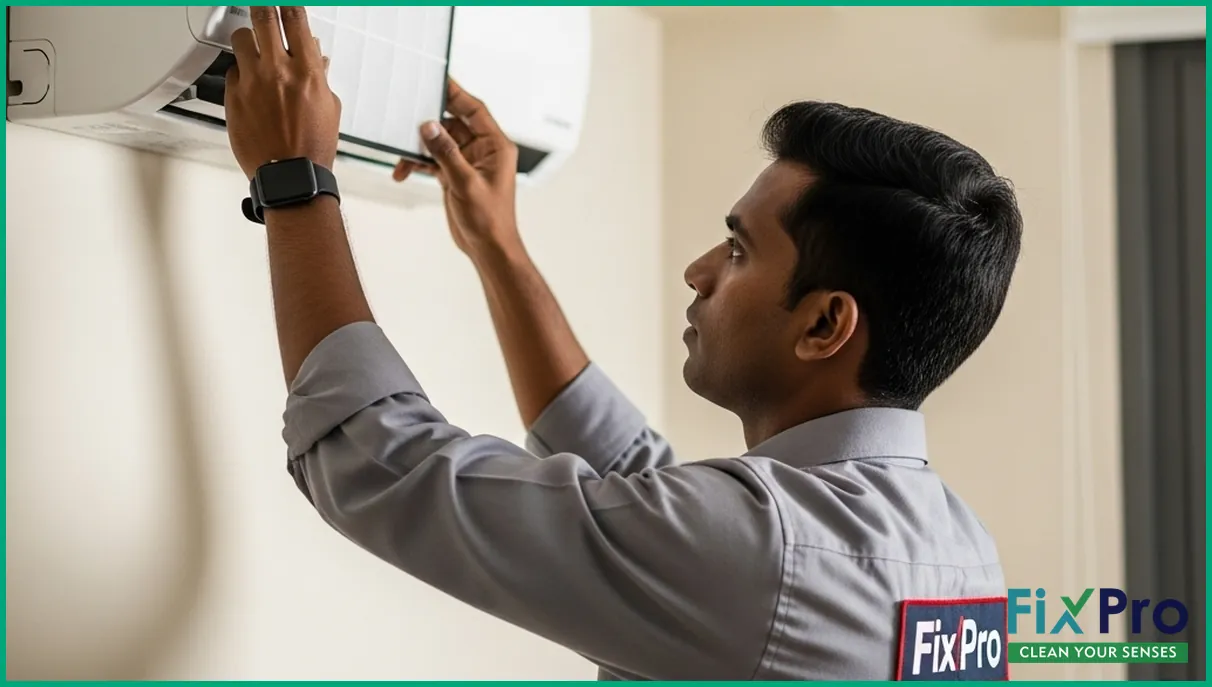
For a quick freshen-up, run your AC on “fan only” mode for 30 minutes after cleaning filters to help dry out any moisture. Always turn off the power before removing filters or cleaning any part of the unit.
FAQs: Quick Answers About Urgent AC Cleaning & Maintenance
How do I know if my AC ducts need cleaning?
Signs include visible dust, musty smells, or worsened allergies at home.
In villas and larger apartments, ducts can collect dust and even pests over time. If you’ve recently renovated or experienced a sandstorm, a duct inspection is a good idea.
Is water leaking from my AC dangerous?
Leaks can cause mould and damage walls or floors. Address them quickly to avoid bigger issues.
If you notice water stains on ceilings or walls, switch off the AC and place a towel or tray to catch drips until a technician arrives. Never ignore persistent leaks, as they can lead to costly repairs.
How often should I change my AC filter?
Change or clean filters monthly, especially during heavy use. Dirty filters reduce efficiency.
For reusable filters, rinse with water and let them dry completely before reinserting. Mark your calendar or set a phone reminder to keep the habit consistent.
Can I clean my AC myself?
You can clean filters and vents, but deep cleaning should be left to professionals for safety.
Attempting to clean coils or internal parts without proper tools can damage your unit or void warranties. For split or central ACs, stick to surface cleaning and filter changes.
Does AC cleaning help with allergies?
Yes, removing dust and mould from your AC can improve indoor air quality and reduce allergy symptoms.
For best results, combine AC cleaning with regular dusting, mopping, and using air purifiers in bedrooms. This is especially important during pollen season or when outdoor air quality is poor.
What to Do Next
If you’ve noticed any of these warning signs, it’s time to schedule an AC inspection. Acting quickly can save you money and help you avoid discomfort. For more details on keeping your system in top condition, explore our HVAC maintenance advice.
For added comfort, try pairing your AC maintenance routine with simple home upgrades: use blackout curtains to reduce heat, add indoor plants for fresher air, and keep doors closed to maintain coolness. With the right care, your AC will keep you cool and comfortable all year long.
